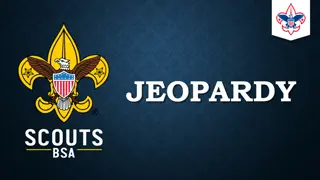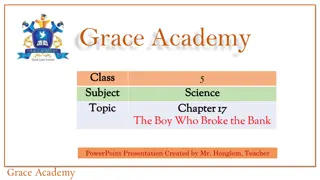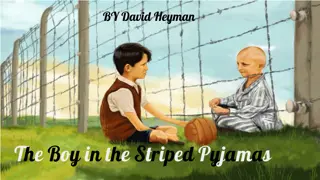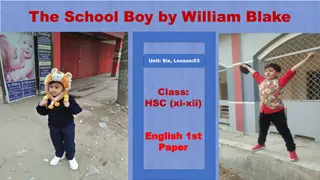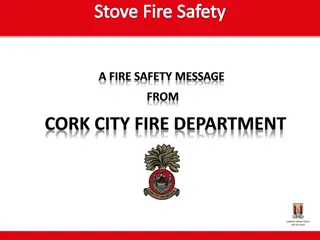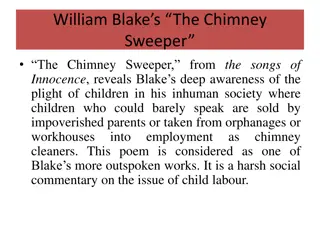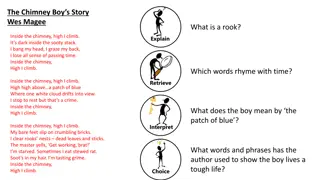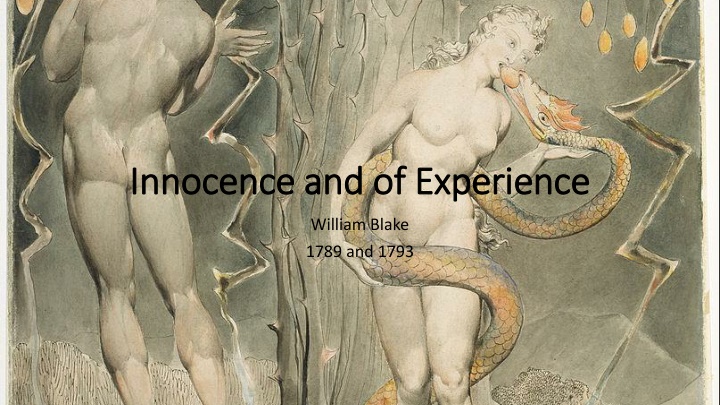
Exploring William Blake's Songs of Innocence and Experience
Delve into the themes of innocence and experience in William Blake's iconic works through a journey of self-discovery, societal critique, and contrasting perspectives. Analyze the language, form, and structure of his poems, uncovering the profound depth of his artistic vision and the timeless relevance of his message.
Download Presentation

Please find below an Image/Link to download the presentation.
The content on the website is provided AS IS for your information and personal use only. It may not be sold, licensed, or shared on other websites without obtaining consent from the author. If you encounter any issues during the download, it is possible that the publisher has removed the file from their server.
You are allowed to download the files provided on this website for personal or commercial use, subject to the condition that they are used lawfully. All files are the property of their respective owners.
The content on the website is provided AS IS for your information and personal use only. It may not be sold, licensed, or shared on other websites without obtaining consent from the author.
E N D
Presentation Transcript
Innocence Innocence and of Experience and of Experience William Blake 1789 and 1793
Welcome to English Literature Introduce yourself. 1. If you could be any fictional character, who would you be and why? 2. Who is your favourite author and why? 3. Explain the plot (without spoilers) of your favourite book. 4. What type/genre of stories do you like to watch or read and why?
The life of William Blake Paired work: Read the table of key events in Blake s life, and complete Task 1. Gather together those events which you feel would have most pushed him in the direction of social and political protest.
Introduction to Songs of Innocence and of Experience by William Blake childhood children Short-lived love purity youth unblemished energy Innocence optimism Without knowledge wonder questioning without sin simple understanding natural
Lessons learned/repeated hate Cares, duties, responsibilities maturity repulsion knowledge age pessimism Experience reason acceptance/ resignation wisdom fears and anxieties alienation adult cynicism suffering and pain
William Blake Songs of Innocence and of Experience In your groups of 3 discuss what you need to be happy and what prevents happiness. Complete activities on page 3 of your booklet.
Exploring the Language, Form and Structure of Infant Sorrow, My Pretty Rose Tree, A Divine Image (Exp) and The Divine Image (Inno) In groups consider THE EFFECTS of Blake s techniques in one of the poems: Rhythm and Rhyme are there regular patterns? Does it fit or challenge the tone and subject matter of the poem? Vocabulary are the words simple or sophisticated? Consider the use of abstract nouns and proper nouns. Do you notice any repetitions or words linked to particular aspects? Figurative language the use of imagery, personification, metaphor, simile, alliteration, symbolic meanings.
Glossary Infant Sorrow Infant Sorrow Fiend Fiend: Fiend here coveys the effect of the child being stifled or repressed (hid in a cloud), some critics have felt that fiend , like tiger represents natural instincts , whose expression is suppressed. My Pretty Rose Tree My Pretty Rose Tree Quatrains and alternate lines of rhyme The Divine Image ( The Divine Image (Exp Secrecy Secrecy deceit, dishonesty Forged fiery Forged fieryForge Furnace Forge Furnace - Note the powerful alliterative effect of the f s and g s which contrast sharply with the softness which there should be in form and face . Gorge Gorge throat, appetite Exp) ) The The Divine Image (Inn) Divine Image (Inn) Mercy, Pity Peace, and Love Mercy, Pity Peace, and Love the choice of words in a kind of ascending worth God is love And Peace, the human dress And Peace, the human dress - - humans living in harmony with others Clime Clime - - country And all must love the human form And all must love the human form the universality of love which transcends the narrowness of organised religions, is indicated here.
Lyrics From Ancient Greece Captures a particular moment, mood or insight Explores the inner workings of the self Explores the impact of an incident/experience on a poet s feelings Explores the rights of the individual and their place in the world Explores how this world is governed
The Schoolboy Look at the illustrations, what do the they tell you about the theme of this poem? Quotation Meaning Winds his horn Sounds it by blowing A cruel eye outworn Almost in anticipation of an Dickensian caricature of a schoolmaster, whose teaching lacks animation and is repeated many times until worn out. Learning s bower Learning, so potentially wonderful is spoiled and now offers no delight to the narrator. With the dreary shower Monotonous instruction Droop his tender wing A continuation of the bird extended comparison.
The Schoolboy The poem is a first person narrative, the tone is conversational. The schoolboy remembers what is it like to rise in a summer morn without constraint, but this memory combines with his present experience of school, of rules and regulations. He is convinced that he is wasting the all too brief spring time of his life. This poem can be read as an appeal against the early imposition of unnatural and unnecessary learning. Blake does not see formal education as an advantage but that to be at school is to be taken away from the more real education that can be provided by natural world outside. Lines 14 and 15 develop the crucial metaphors linked to growth, the seasons and nature. Bower can mean somewhere quiet and intimate and also a shelter made of plants in a garden. Neither the seclusion nor the contact with nature is available in the classroom, but both are found by the boy in his illustration, reading at the top of a tree. The shower described does not bring growth but instead dulls the senses with monotonous instruction, dreary shower . Nor in my book can I take delight . Here Blake is not saying that books are somehow dull in themselves but that the imposition of controls and constraints on his reading and learning, are damaging.
Context research I need to you research the condition of children s lives in the late 18th century. I am concerned particularly with the lives of working children and chimney sweeps in London at the time. Also find out as much as you can about the levels of literacy and the education of children from poor families. Then consider how the following aspects of context might develop (or even change?) your interpretation of the poem The Chimney Sweeps (Songs of Innocence)
The Chimney Sweeper (Songs of Innocence) Rhythm and Rhyme are there regular patterns? Does it fit or challenge the tone and subject matter of the poem? Vocabulary are the words simple or sophisticated? Consider the use of contrasting images. Do you notice any repetitions or words linked to particular aspects? Figurative language the use of imagery, personification, metaphor, simile, alliteration, symbolic meanings.
The Chimney Sweeper (Songs of Innocence) Blake deliberately poses his poem in the form of a question: is innocence a valuable perspective on the world or is it instead at the service of manipulation and greed? In your groups explore the significance of Tom s dream, what is this dream supposed to imply?
The Chimney Sweeper (Songs of Innocence) Are we to believe that a na ve, simple religious belief can compensate us for suffering? Are we meant to think that if we merely change our attitudes, we can come to enjoy the most loathsome aspects of our lot in life? Or are we meant to see, with a certain irony, the ways in which religion colludes with other forms of tyranny in offering us false promises which merely serve to ensure we do not challenge our masters? Paradise Found? Paradise is seen as some compensation for the hardships the boys suffer in the poem. The question here is when, where and how shall we find this Paradise and at least three answers are possible. 1. We find it by looking at the present world through transformed eyes. 2. That paradise does not exist at all, and we find it by closing our eyes to reality and retreating back into our imagination. 3. That Paradise can be found but only on the other side of death.
Blakes visions Blake was very attached to his younger brother Robert and nursed him through his final illness in 1786 He regarded Robert as a kindred spirit and a source of inspiration When Robert died Blake saw his spirit ascending to heaven clapping his hands for joy
Neoplatonic ideas The Greek philosopher Plato believed that the soul was immortal and existed before we were born In this philosophy the soul enters the body at birth which entails a loss of freedom. In this belief the physical body is therefore like a coffin. It can be thought of as a prison from which the soul is set free when the body dies
Homework Homework: Watch The South Bank Show documentary on William Blake. There is a link to the video on Padlet. You will have to consider the meaning of the opening line from Auguries of Innocence ready for discussion and make notes under the headings provided. I will email the link to you too. https://padlet.com/s_newton/kv6rt6mvz84v
Homework discussion task It is impossible to summarise Blake s visionary ideals, that he spent a lifetime considering. However, this quote can be seen as central to all Blake s thinking and writing. To see the world in a grain of sand . What do you think this quotation tells us about Blake s ideas?
I would make the following points I would make the following points To be able to see the world as it truly is and understand that all aspects of life on earth are interconnected. The Priests in black gowns with their repressive morality are, for Blake, The sickness in the rose , which prevents man achieving that state of wholeness he feels is vital. To him All religions are one , and should lead to the ability, To see the World in a Grain of Sand , by enabling us to come closer to God and God s creation. The dark satanic mills in Jerusalem are symbolic of the materialism of his age which he hated, as he saw it blocking the all-important flowering of imagination. It s only by using the imagination that man is able to appreciate the world as a total inter-connected organism, in which a grain of sand is as much a part as anything else. Aware that observations depend on the observer , he hated the all pervading faith in Reason, so predominate in his age, which laid down dogmatic truths about life. For Blake, humanity is like a Garden already planted , and imagination enables us to appreciate the whole glory of the natural world to see the world in a Grain of Sand, or God in everything in life .
Introductory discussion task Introductory discussion task Before we look in more detail at the poem The Chimney Sweeper (Exp) and given that you already know that Blake is a powerful critic of social injustice, what do you think this quotation means? gone to praise God and his priest and king, Who make up a heaven of our misery. What makes possible the heaven of the authorities of church and state?





